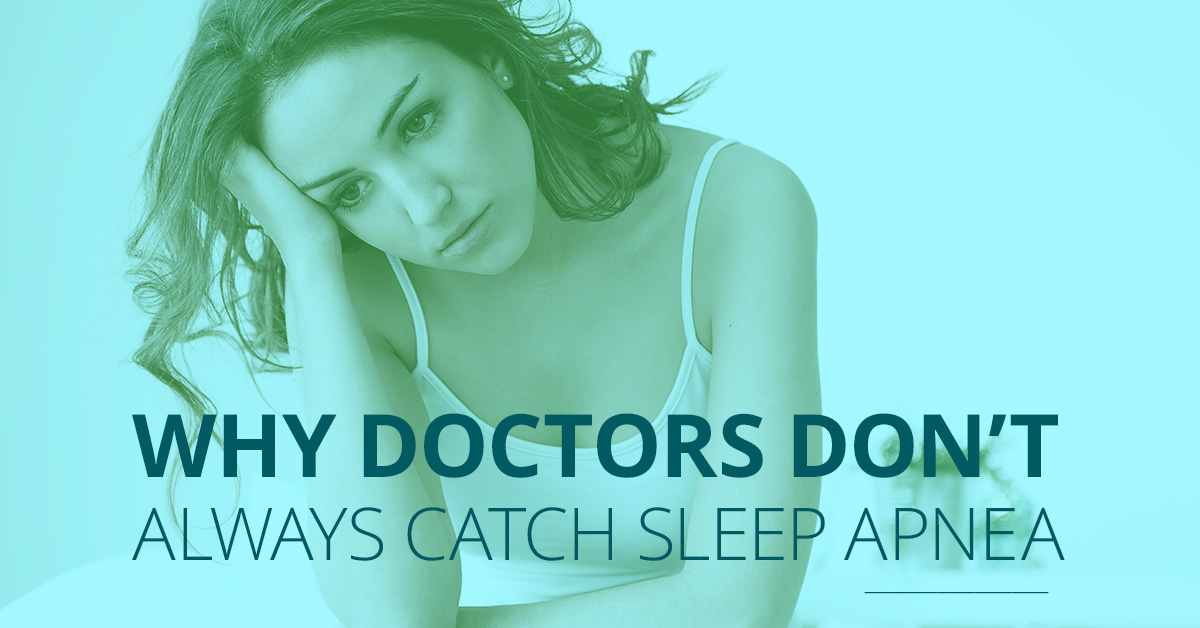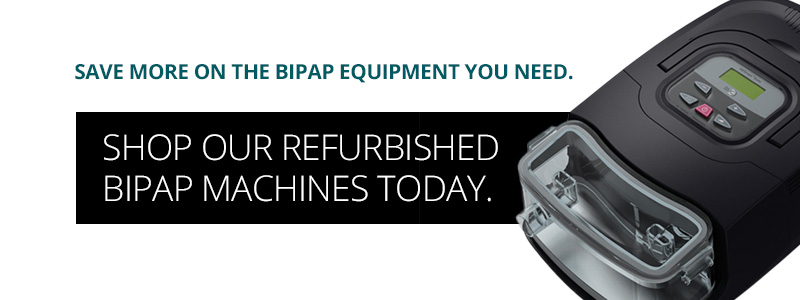Mar 7th 2017
Why Doctors Don’t Always Catch Sleep Apnea

Roughly 22 million Americans have some form of sleep apnea, but an estimated 80 percent of moderate to severe cases go undiagnosed.
For many Americans, it’s not always easy to get a good night’s sleep. Sure, some of this sleeplessness can be blamed on poor sleep hygiene (i.e. watching TV late at night, not finding a productive way to cope with your stress or drinking caffeine late in the day), but according to the National Institute for Neurological Disorders and Stroke, approximately 40 million people living in the United States have some sort of chronic sleep disorder, roughly 22 million of which have some form of sleep apnea.
When left untreated, sleep apnea can put you at risk for many different health complications, including high blood pressure, atrial fibrillation, chronic heart failure, depression, type 2 diabetes, stroke and many other cardiovascular conditions. Unfortunately, 80 percent of the people suffering from moderate to severe cases of sleep apnea don’t get the treatment that they need because they aren’t diagnosed properly. But why is it so difficult for doctors to diagnose sleep apnea?
The signs of sleep apnea aren’t always so obvious.
Sleep apnea doesn’t occur when you’re awake, which is why it’s a sleep disorder, and it’s not always obvious to the person experiencing sleep apnea, let alone to the doctor who has to rely on the information their patient is providing to them to determine a diagnosis. There are telltale signs of sleep apnea during the waking hours, such as fatigue, lack of focus, mood swings, weight gain and depression, but many of these signs also point to other health concerns as well, which is why sleep apnea is often misdiagnosed as insomnia, asthma and some psychiatric disorders, but two of the most common conditions that sleep apnea is misdiagnosed as are depression and ADD/ADHD.
Why is sleep apnea misdiagnosed as depression?
Depression is one of the most common signs of sleep apnea, and according to the Journal of Clinical Sleep Medicine, as many as 70 percent of sleep apnea sufferers experience depression. Studies have also found that, when the severity of sleep apnea increases, so does the risk of developing depression. Because sleep apnea looks like depression, it is often misdiagnosed as such.
Why is sleep apnea misdiagnosed as ADD/ADHD?
Attention deficit disorder (ADD) and attention deficit hyperactive disorder (ADHD) are also common misdiagnoses for sleep apnea. Much of the symptoms of sleep apnea are the same as the symptoms of ADD/ADHD, including difficulties with concentration. Although both adults and children suffering from sleep apnea have been misdiagnosed with ADD/ADHD, it is most commonly misdiagnosed in children.
If you think have sleep apnea and you’ve been misdiagnosed, don’t hesitate to get a second opinion. Without the right treatment, sleep apnea can lead to much more serious problems.
Once properly diagnosed with sleep apnea, you may be prescribed CPAP or BIPAP therapy, and here at CPAP Liquidators, we offer a large selection of used BIPAP and CPAP equipment. Shop with us today.


